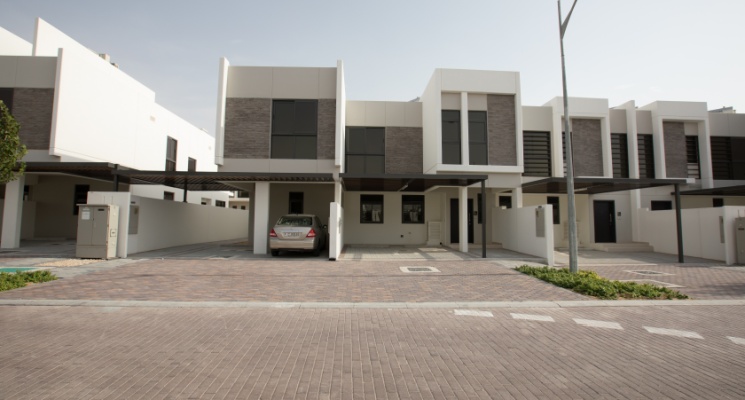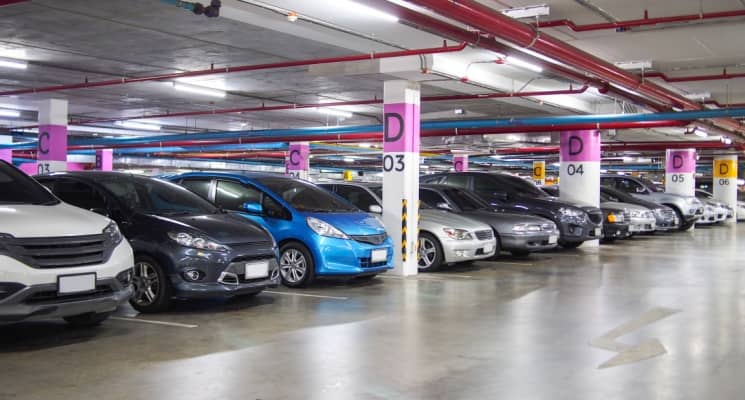Getting a mortgage in Dubai can be difficult, particularly for first-time buyers and expats who are unfamiliar with the local market. However, with the proper information and planning, it can be simple and profitable.
This blog will detail all the necessary requirements and steps to get a mortgage in Dubai. By the end of it, you will be well-informed to achieve your goal of house ownership and will be needing Dubai movers to help you move into your own home.

The Mortgage Market in Dubai
In Dubai, there is a lot of competition within the mortgage market, with various banks and other financial institutions trying to out-do one another by offering different types of products, and promotions. It would be wise to keep in mind the local regulations and system requirements so that you are able to make an informed decision. Since it is regulated by Dubai Land Department, and the UAE Central Bank, everything surrounding a mortgage is pretty transparent and secure for both the lender and the borrower.
Mortgage Rates in Dubai
Mortgage rates in Dubai typically range from 4% to 4.5%, depending on the bank and your financial profile. It is beneficial to compare various offers to align with your long-term financial goals.
Mortgage Duration
Additionally, while there is no limit on how long you can own a property in Dubai, mortgage durations are usually capped at 25 years, giving you plenty of time to repay and fully own your home. If you are an expat with plans of moving or relocating, you can leave the UAE with a mortgage, provided you have arrangements to continue servicing the loan. That way, you can keep your property investment even if you move abroad.
Eligibility Criteria
Before you begin the mortgage application process, make sure you match the eligibility requirements set by the lenders. We sat down with Graham Brown, a professional mortgage consultant from MENA Mortgage Services to help answer some essential questions one might have before applying for a mortgage in Dubai.
Residency Status
The UAE nationals get LTV ratios of up to 85%. Expatriates can also get a mortgage, but the loan-to-value (LTV) ratio is 80% of the property’s value. That is lower as compared to the UAE nationals.
Income and Employment
Your income and employment status are crucial for mortgage eligibility in Dubai. Banks need proof of stable and sufficient income. This ensures you can manage mortgage repayments effectively.
Stable Income
Lenders prefer borrowers with a stable and sufficient income. Typically, you need “a minimum monthly income of AED 10,000, but for the vast majority of banks, it is AED 15,000”, according to Mr. Brown.
Assets and Liquid Cash
In Dubai, your mortgage decision is based only on your income within the UAE. You do not need additional assets to secure your mortgage. However, you must have a minimum deposit of 20% of the property’s purchase price. If the property is worth more than AED 5 million, this requirement increases to 30%. Ensuring you have liquid cash available for the downpayment is crucial for a smooth mortgage process.
Employment History
A steady employment history of at least six months to a year with your current employer is usually required. Self-employed individuals must show proof of consistent income over the past two to three years.
Credit History
Credit Score: A good credit score is essential. Lenders will check your credit history to assess your financial responsibility.
Debt-to-Income Ratio: Lenders will evaluate your existing debts compared to your income to ensure you can manage additional mortgage payments.
Types of Mortgages Available in Dubai
The following are the types of mortgage available in Dubai. Each caters to different needs and preferences, so understanding these options will help you choose the best plan for your situation.
Fixed-Rate Mortgages
A fixed-rate mortgage offers a stable interest rate for a specific period, usually ranging from one to five years. This type of mortgage provides predictability in monthly payments, making it easier to budget.
Variable-Rate Mortgages
Variable-rate mortgages have interest rates that fluctuate based on market conditions. While the initial rate might be lower than a fixed-rate mortgage, it can change over time, leading to potential savings or increased costs.
Islamic Mortgages
Islamic mortgages, compliant with Sharia law, are structured differently from conventional mortgages. Instead of charging interest, the bank buys the property and leases it to the borrower with an agreed profit margin. Common Islamic mortgage products include Ijarah (leasing), and Murabaha (cost-plus financing).
Steps to Secure a Mortgage in Dubai
Securing a mortgage in Dubai involves several key steps. Start by evaluating your financial health. Calculate your savings, monthly expenses, and existing debts. This will help you figure out how much you can afford for a down payment and monthly mortgage payments.
Once that is done, you must do your research and choose the right bank. It is crucial as each bank has different criteria and processes. While there is no one-size-fits-all solution, working with a mortgage broker can help you identify the best options based on your specific circumstances and requirements. Here’s a detailed breakdown to guide you through the process.
1. Get Pre-Approval
First, you need to get a mortgage pre-approval from a bank. This process gives you a clear idea of what you can borrow. It also establishes that you are a serious buyer. To get pre-approved, you must submit a set of documents to the bank. The bank will review these documents and decide how much they can lend you based on your financial situation. Here’s what you’ll need to provide for pre-approval:
- Proof of income (salary slips, bank statements)
- Employment verification
- Passport and visa copies
- Proof of address
2. Find a Property
With your pre-approval in hand, you can confidently start searching for a property. Engage a real estate agent with a good reputation, and who also understands the Dubai market and can help you find a property that meets your needs and budget.
3. Agree on a Form F
Once you have found a property, the next step is to agree on a Form F with the seller. Form F is the contract between the buyer and the seller outlining the terms and conditions of the sale.
4. Property Valuation
The bank will then conduct a property valuation to ensure the property’s value aligns with the purchase price. This step is crucial as it influences the final mortgage offer.
5. Final Offer Letter
After the valuation, the bank will issue a final offer letter specifying the mortgage amount and terms. Review this document carefully and ensure you understand all the terms and conditions.
6. Developer NOC
Before the transfer of ownership, you must obtain a No Objection Certificate (NOC) from the property developer. This certificate confirms that there are no outstanding fees or issues with the property.
7. Transfer of Ownership
The final step is the transfer of ownership at the Dubai Land Department. This process involves signing the necessary documents and paying the transfer fees to officially become the property owner.
Conclusion
Securing a mortgage to buy property in Dubai requires careful planning. You need to understand the local market and meet specific eligibility criteria. By following the steps outlined in this guide, you can navigate the mortgage process with confidence. However, do get professional advice when necessary. Dubai has a robust real estate market and provides opportunities to invest in one of the world’s most dynamic cities. With the right approach, your dream of owning a home in Dubai can become a reality.
Once you have secured your property and need help with other aspects related to local moving such as packing, transportation, etc. you can get professional movers and packers in Dubai through ServiceMarket.







